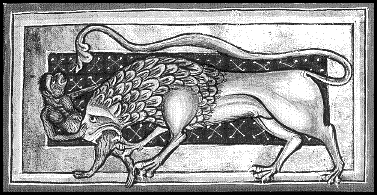
Everyday
Survival
Why Smart People
Do Stupid Things
Laurence Gonzales
(Norton)

- Human beings are probably closer to bonobos than they are to chimpanzees ... which is lucky (bonobos are known as the hippies of monkeydom).
- A million and a billion are quite different. "It's easy to lose sight of the size of such numbers," writes Gonzalez, "because they're so easily tossed around ... Translating numbers into time can give us a better sense of their magnitude. A million seconds, for example, is 11.6 days. A billion seconds is 31.7 years."
- "Hydrogen, carbon, and oxygen are the most promiscuous elements in terms of their ability to form compounds with other atoms." They make up "95 percent of you and me."
- "The helium produced by stars, which began forming about a billion years after the big bang, is useless in creating life. That's why we had to wait for stars to start dying before we could be born."
- Xerox Corporation --- through its subsidiary PARC --- "invented the personal computer, the mouse, the graphical user interface that we take for granted, Ethernet, laser printing and almost everything else associated with the digital revolution." But they did nothing with it, and ultimately the Homebrew Computer Club --- Steve Jobs and Apple --- put out the machine that changed the world. Why did Xerox fail? Because it was run by "well established executives who knew how to manage large organizations," mostly brought in from Detroit (automobiles) and Pittsburgh (steel).
Everyday Survival is a hodgepodge of facts like these, but it is also a hodgepodge of strangely disjointed chapters. Gonzales wants to show us how smart people do stupid things, but he veers off unexpectedly into fractals, entropy, "the heat ladder," the story of Odysseus, the Mexican Revolution ("that killed one out of every eight Mexicans") and the Copper Canyon. He seems only to have included this last because he went there, found it beautiful, and thinks that the people who live there can fly (or dance: one of the Indians he met there "was the Nijinsky of rocks.").
Occasionally his writing rises to its subject. This on the coming of reptiles, who "could move around and eat things."
They laid eggs, and when some reptiles hatched, their first job as babies was to get as far away from mom as possible, since she would eat them too.
Or, on the question of whether animals are using plants, or plants using animals:
Because it was the angiosperms that devised the countless ways of transporting their seeds by using mammals and birds, from the burr that catches on the fur to the seeds in fruit, which will pass unharmed through the body of a bird to fall on the ground conveniently encased with fertilizer.
"[Loren] Eisley took the view that flowering plants, in their great wisdom, built birds and mammals for their own purpose."
And Gonzales can be cogent: "To find our earliest beginnings, we must go far beyond the age of the earth. We are made up of dead stars."
But whole chapters meander, such as the one on entropy ("The Earth is Rotting"). It wambles about, hither and yon, like a drunk, or a planet, or entropy itself ... begging for a good editor to come save it from entropic collapse.
--- Lolita Lark